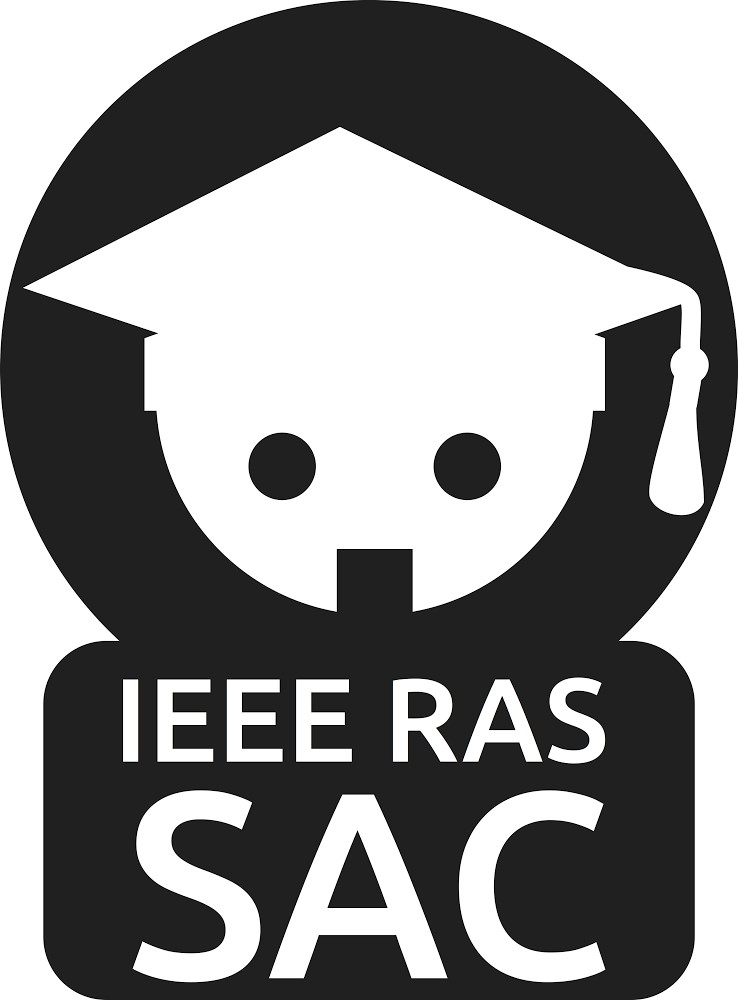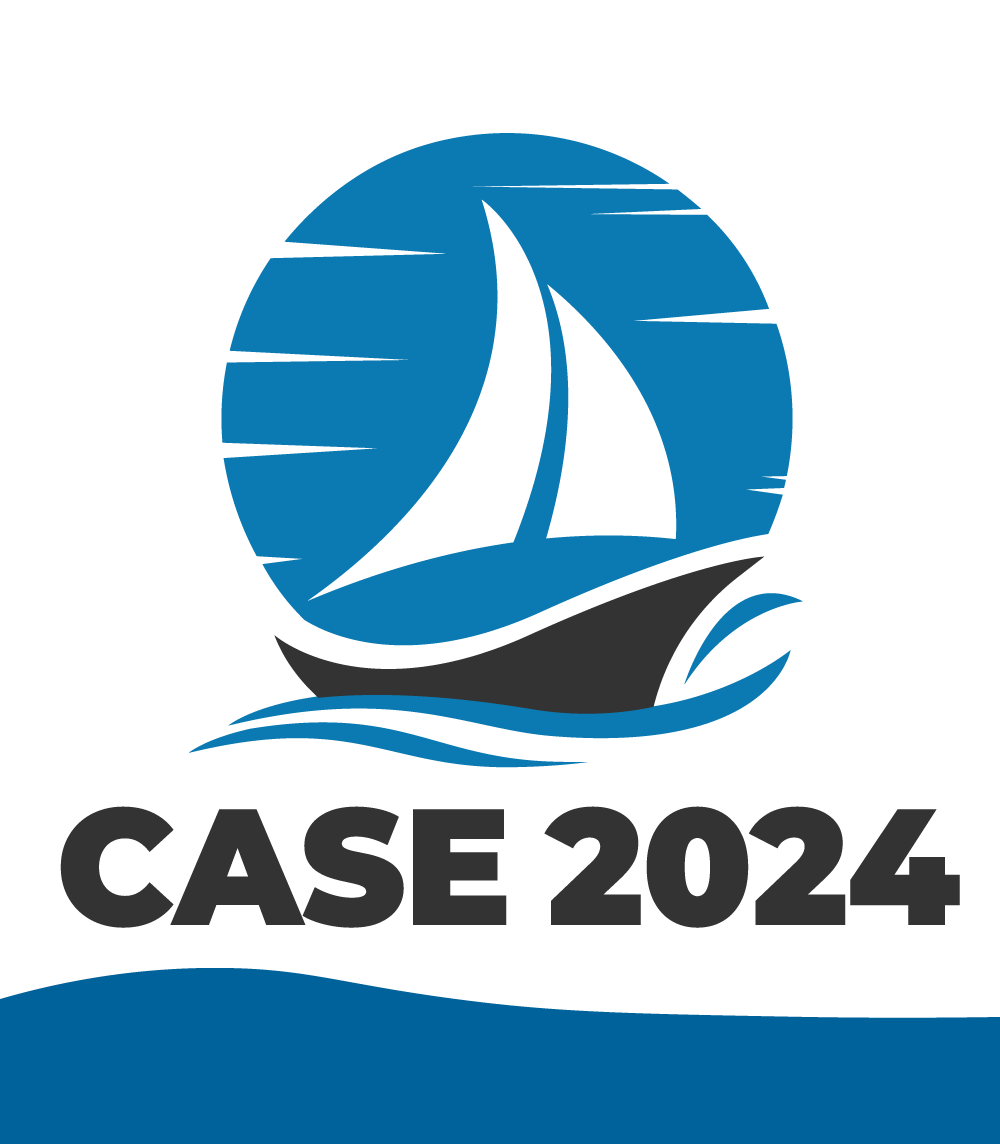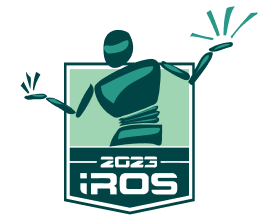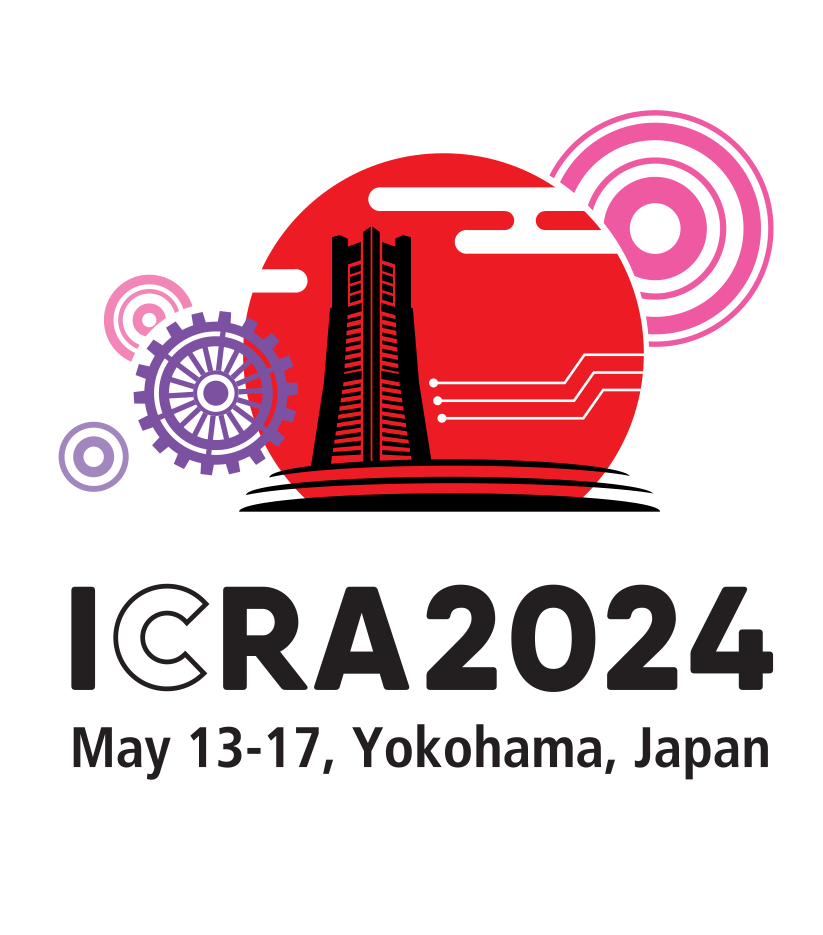Student News and Announcements
RAS Student Activities Committee Panel: Transition to a Career in Academia
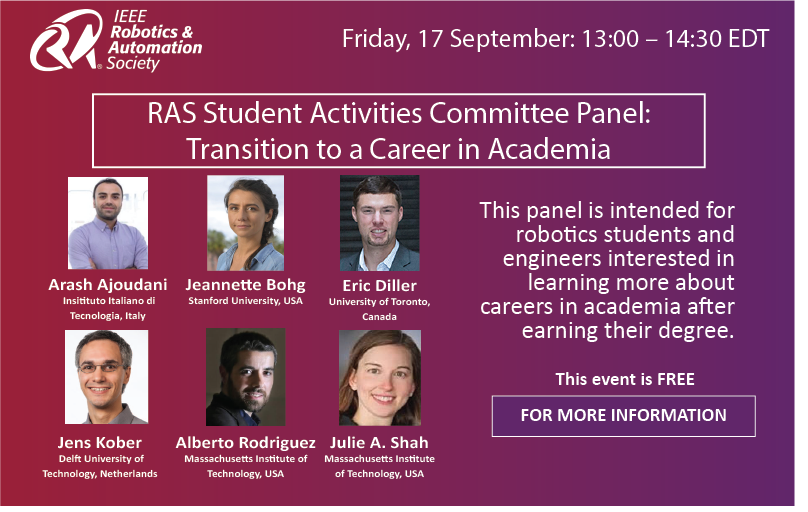
Friday, 17 September: 13:00 – 14:30 EDT (17:00 – 18:30 GMT)
This event is a FREE event
The Robotics and Automation Society Student Activities Committee (RAS SAC) is proud to present “Transition to a Career in Academia,” a panel with robotics thought leaders:
- Arash Ajoudani, Insitituto Italiano di Tecnologia, Italy
- Jeannette Bohg, Stanford University, USA
- Eric Diller, University of Toronto, Canada
- Jens Kober, Delft University of Technology, Netherlands
- Alberto Rodriguez, Massachusetts Institute of Technology, USA
- Julie A Shah, Massachusetts Institute of Technology, USA
This panel is intended for robotics students and engineers interested in learning more about careers in academia after earning their degree. The panel will be moderated by RAS SAC Co-Chair, Marwa ElDinwiny.
To receive the recording and/or submit a question, please fill out the registration form.
Event Webex Link
(Event number: 2631 147 8920 / Event password: 2021)
CALL for RAS Student Activities Committee (SAC) Chair AND Co‐Chairs
DEADLINE EXTENDED TO 8 NOVEMBER 2021
The IEEE Robotics and Automation Society (RAS) is seeking applications for the Member Activities Board’s Student Activities Committee (SAC). There are openings for one chair and one or more co‐chairs. These positions offer great opportunities to learn more about the Society, have an international impact, and expand one’s professional network. The chair will serve for two calendar years (2022 – 2023), and the co‐chairs for a one‐year term in 2022 and renewable for a second year.
The IEEE‐RAS Student Activities Committee promotes student participation in the Society activities in co‐operation with all Society Boards, Committees and Working Groups, under the supervision of the Member Activities Board. The mission of the committee includes working on issues of interest to student members and interacting with student members and student chapter branches. Current areas of focus include:
- Lunch with Leaders held at flagship conferences (ICRA, CASE, IROS)
- Fun, informal social events at RAS sponsored conferences
- Educational webinars
- Membership development
- SAC Website and social media content
- Coordination with student branch chapter chairs
- SAC column in IEEE Robotics & Automation Magazine (quarterly publication)
Description of Roles:
Chair: The Chair will be responsible for managing the SAC and its efforts. The Chair of the SAC will be one of 23 voting members on the RAS Administrative Committee (AdCom). The Chair is expected to attend semi-annual Administrative Committee meetings, held in conjunction with ICRA and IROS conferences. Travel support of up to $2500 USD is provided by the Society to attend these meetings. The Chair shall also serve on and report to the Member Activities Board.
Social Media Co-Chair: This co-Chair is responsible for managing electronic communications as they pertain to SAC-organized activities. This will include maintaining an online presence as well as making announcements on social media platforms to promote the Society and the activities of the SAC.
RSR Coordinator Co-Chair: This co-Chair will be the primary channel of communication between the Regional Student Representatives (RSRs) and the SAC, as well as various Student Chapters directly as required. They are also expected to promote communication between various Chapters in the Society and assist RSRs when necessary. The co-Chair is also expected to work with the RSRs to highlight student chapter activities for the IEEE Robotics & Automation Magazine (RA-M) Chapter and International Activities column.
RA-M Co-Chair: The Society publishes the IEEE Robots and Automation Magazine every quarter, and the RA-M co-Chair is expected to contribute, collect or solicit reports or articles for RA-M to write the Student’s Corner column. Topics are open-ended but typically focus on current and relevant issues in robotics and robotics education.
Conference Event Co-Chair: This is a more fluid role that exists to help coordinate or organize events or volunteers during ICRA, IROS, or CASE. This individual will likely be expected to work closely with conference Organizing Committees to accomplish various tasks, e.g., organizing student-led Tutorial sessions.
Candidates may be undergraduate or graduate students, but must be student members of the IEEE Robotics and Automation Society in good standing. The ideal candidate has strong social, professional, and communication skills, is willing to take part in ongoing activities and propose new initiatives. Past participation in SAC is requested but not required. There is no geographical preference.
Currently, the SAC has several initiatives to promote active networking, interdisciplinary dialogues, and robotics education. Some initiatives require weekly SAC involvement while other activities are conference specific (currently developed around the RAS flagship conferences: IROS, ICRA, and CASE). More information about current activities can be found at the RAS webpage.
Interested applicants should be:
- Self-motivated
- Organized
- Responsive to email discussions
- Able to commit 5+ hours a week to SAC material, potentially more when required for specific activities (e.g. reviewing volunteer proposals, organizing conference activities, etc.)
If you wish to be considered, please complete an Application Form by 8 November 2021 and indicate whether you are applying for the Chair or Co-Chair position (please specify one or more co-chair positions):, and include the following information:
- A letter indicating applicant’s interest in serving on the SAC and relevant experience (2 pages maximum)
- A CV or résumé (2 pages maximum)
- A letter of support from a faculty member at your college or university (preferably a current member of IEEE and RAS).
For more information on the SAC and current activities, refer to the IEEE RAS webpage.
Student Chapter Event Highlight- University of North Texas Future Innovators Workshop Spring 2021
Future Innovators Workshop Spring 2021
University of North Texas Robotics and Automation Society
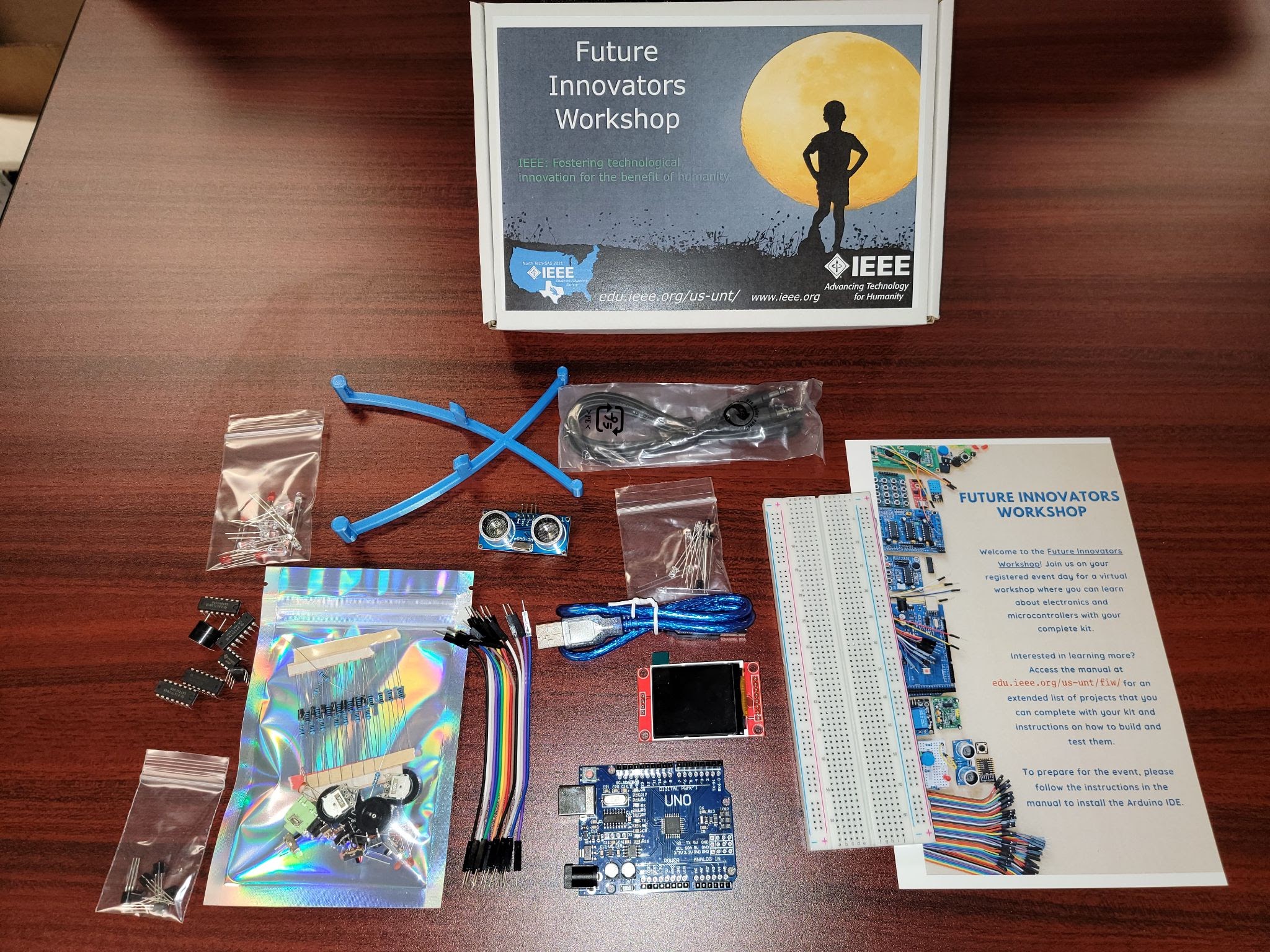
The University of North Texas Robotics and Automation Society student chapter recently held the first Future Innovator’s Workshop. This event, held in conjunction with the IEEE North Tech-SAS Summit hosted by the IEEE UNT Student Branch, is a STEM outreach initiative targeting K-12 students. During this completely free event, students who registered received free electronics kits provided by the UNT RAS chapter to teach them about the wide world of electricity, circuits, and microcontrollers through hands-on projects. All of our 85 slots for students filled up within a week of opening registration with over 20 additional students signing up to be notified of future offerings.
The workshop is divided into three experience levels: beginner, intermediate, and advanced. The workshops were originally intended to be held during the first days of the North Tech-SAS Summit on Saturday, February 20th and Sunday, February 21st. However, due to the major winter storm that affected many of our registrants in Texas, we added four additional meeting times on Saturday, March 20th and March 27th. In total, we held four workshops for beginners, four for intermediates, and one for advanced students. All of the workshops were held using Google Meets and included an introduction video from UNT Chancellor Lesa Roe, an introduction to the parts for the session, and a walkthrough of the selected project.
In the beginner workshop, we focused on analog circuitry, building a simple adjustable LED circuit to introduce students to the basic concepts of electricity and how to build a basic circuit on a breadboard. In the intermediate workshop, we built a basic buzzer circuit controlled by a pushbutton. Then, we introduced the Arduino and its programming ecosystem through the Arduino IDE to teach students how to interface an Arduino with a circuit by creating a programmable buzzer. In the advanced workshop, we taught students how to create an Etch-a-Sketch device using the Arduino, two potentiometers, a pushbutton, and a 1.8” TFT display.
Each of these three projects are included in our free online FIW handbook located on the FIW home page of the IEEE UNT Student Branch website at https://edu.ieee. org/us-unt/fiw/. The handbook is designed so that students can continue to learn and explore well after the conclusion of the workshop. This document also contains some basic information to introduce students to circuits, electricity, and programming. The projects in the handbook are divided into difficulty levels measured from one to five stars. Each project provides a list of parts required, steps to build the circuit, a circuit diagram using Fritzing, and the code for the Arduino if necessary.
The kit provided to the students contained 33 unique components for a total of 117 parts. This kit is designed to give students the opportunity to build their own creative circuits and explore the possibilities of both circuits and the Arduino. The funds to build this kit and put together the workshop were generously provided through the RAS Initiative Grant as well as through our local Fort Worth IEEE section.
Student Chapter Event Highlight- Esplora
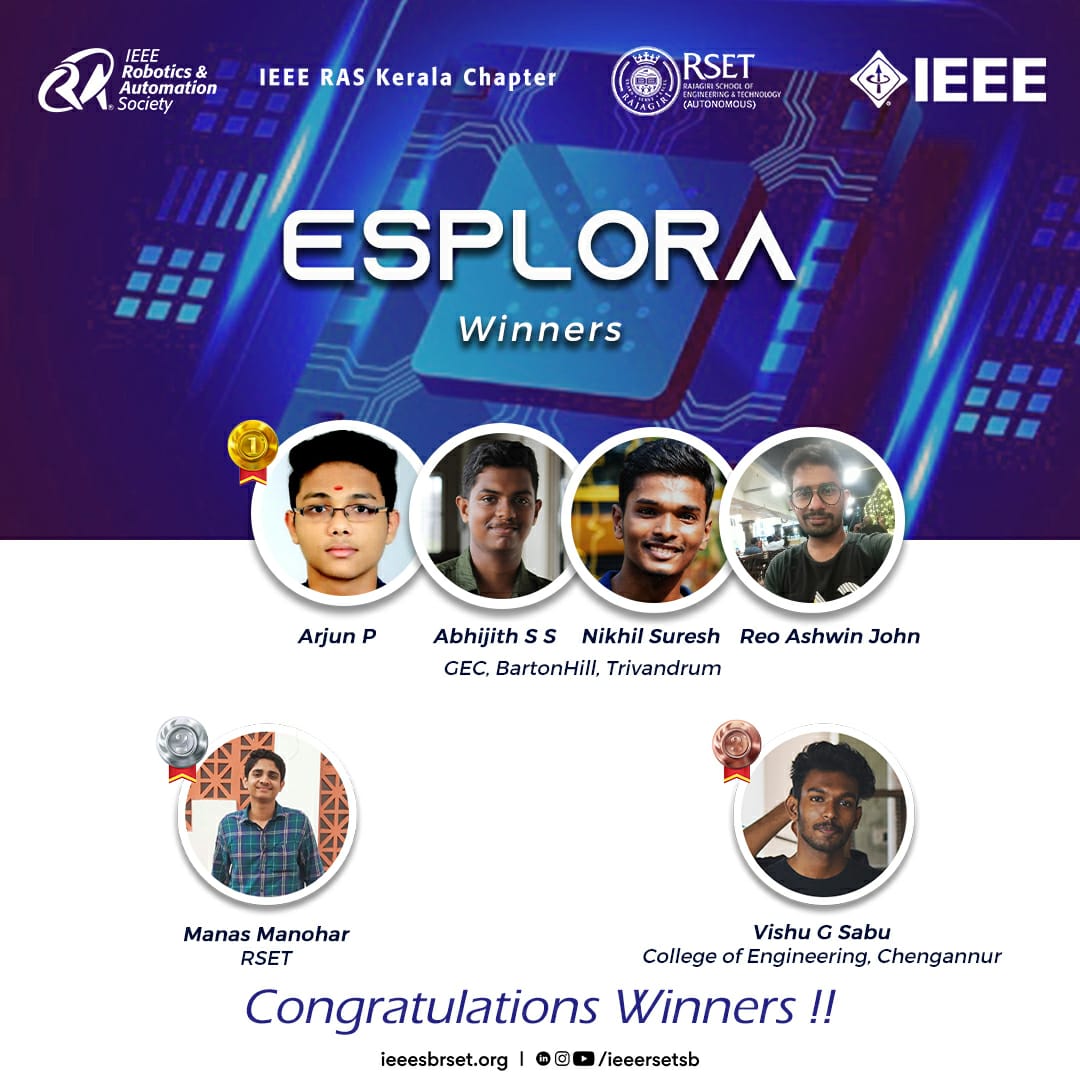
On the 21st of March 2021, RSET IEEE RAS SBC in association with IEEE Robotics and Automation Society Kerala Chapter announced the event ‘Esplora’ a project presentation competition held in honour of Arduino Day(27th March) to inculcate an interest and passion towards robotics among students.
The participants had to register as a team of a maximum of four members and had to submit a demonstration video of 2 minutes and also provide the documentation of their project. The project had to be Arduino based and the participants were given an incentive of a prize pool of 2.5K. They had to submit their projects on or before the 27th of March 2021 following the guidelines that were stated.
Twenty teams participated in the event from colleges all over Kerala submitting their works which were passionate and innovative. They were all judged according to the criteria mentioned in the guidelines and of them, 10 were selected and their project demonstration videos were posted on the official IEEE Robotics and Automation Society Kerala Chapter Instagram page to show appreciation for their work.The works were judged by Mr. Sunil Paul,CEO Srishti Robotics.
Register now for upcoming RAS Seasonal School on “Rehabilitation and Assistive Technologies Based on Soft Robotics”
IEEE RAS Seasonal School on Rehabilitation and Assistive Technologies Based on Soft Robotics
Location: virtually from 14- 18 of June 2021
The Seasonal School is one of the Technical Education Programs (TEPs) sponsored by the IEEE Robotics and Automation Society in 2021. It aims to provide:
* Technical knowledge of engineering processes for designing, developing and validating robotic systems for rehabilitation and assistance;
* Technical knowledge of engineering processes for designing, developing and validating soft robotic systems;
* Practical experience of shared (medical/engineer) design process of robotic systems for rehabilitation and assistive devices;
* Knowledge of expected rehabilitation and assistance from the medical side.
World-class experts in various related disciplines will deliver plenary talks and will organize hands-on workshops.
We are looking forward to welcoming you virtually in June 2021!
------------------------------
Registration
Prospective applicants must fill in the Application Form by June 1st, 2021. The admission to the school will be decided upon a selection made by the School’s Advisory Committee.
A limited number of 60 attendees will be able to attend the school. Only in case of selection, candidates are requested to finalize the registration and pay the registration fee by bank transfer within 5 days of notification. Payment details are reported on the school’s website.
Important deadlines
Application Deadline: June 1st, 2021.
Payment Deadline: 5 days after receiving notice of participation.
------------------------------
Plenary speakers
Kyu-Jin Cho, Seul National University, Korea.
Dario Farina, Imperial College London, United Kingdom.
Fumiya Iida, University of Cambridge, United Kingdom.
Michelle Johnson, University of Pennsylvania, United States of America.
Cecilia Laschi, Scuola Superiore Sant’Anna, Italy.
Stefano Mazzoleni, Politecnico di Bari, Italy.
Marco Molinari, Fondazione Santa Lucia, Italy.
Ryuma Niiyama, University of Tokyo, Japan.
Hao Su, City University of New York, United States of America.
Michael Tolley, University of California, United States of America.
Conor Walsh, Harvard University, United States of America.
Hirata Yasuhisa, Tohoku University, Japan.
Loredana Zollo, Università Campus Bio-Medico di Roma, Italy.
Workshops
WS1 – Organizer: Matteo Cianchetti, Scuola Superiore Sant’Anna, Italy. “Tools for modelling and developing actuators for soft robotics”.
WS2 – Organizer: Federico Renda, Khalifa University, United Arab Emirates.“SoRoSim: A MATLAB toolbox for Soft Robots Modeling”. Tool: SoRoSim.
WS3 – Organizer: Hadi Sadati, King's College London, United Kingdom. “Working on TMTDyn”. Tool: TMTDyn.
WS4 – Organizer: Christian Duriez, University of Lille, France. “DEFROST Platform: Modeling, Simulation and Control of Deformable Robots on SOFA Framework”. Tool: Defrost.
For further and up-to-date information, please visit the school’s website.
Students can save 50% on Membership!
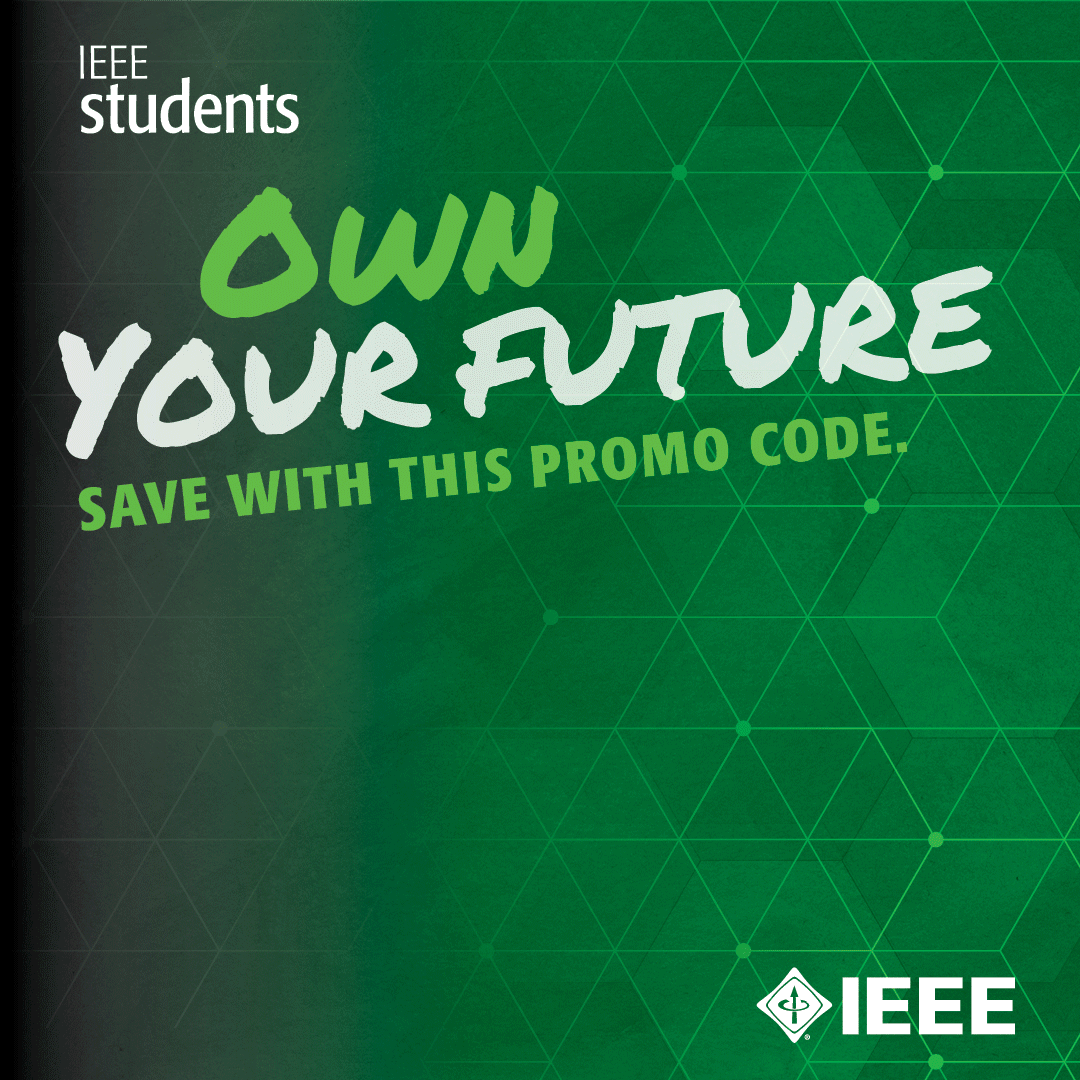
Attention Students! IEEE now offers a discounted dues option for all student and graduate student members. Simply enter promotion code FUTURE50 when you join or renew to receive 50% off your student membership!
This IEEE Board action is providing financial relief to students affected by the global pandemic and subsequent economic hardships around the world. The action empowers IEEE volunteer leaders with an additional tool to help students in need of IEEE's resources, as well as assist students whose IEEE membership has lapsed.
Credit Available: Students who recently renewed or joined at full price can reach out to the IEEE Contact Center at: contactcenter@ieee.org and request a credit on future membership dues.
IEEE Region 8 Virtual Student & Young Professional Congress 2020
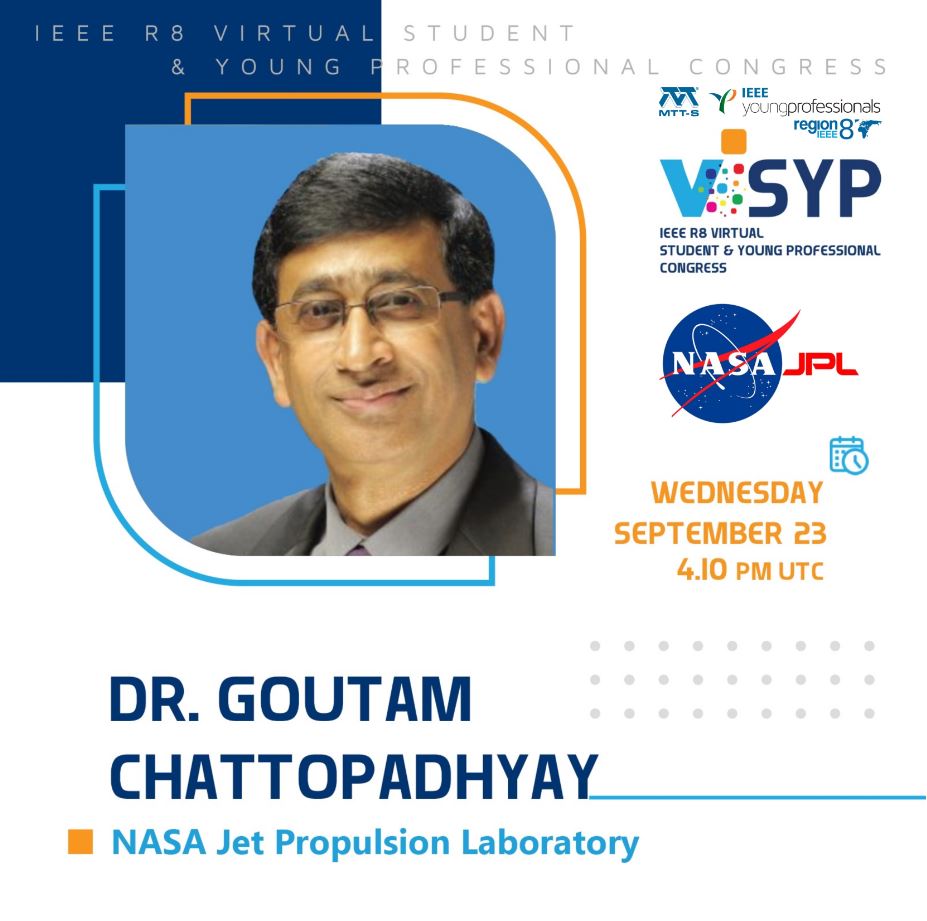
Robotics missions such as Voyager, which continues to go beyond our solar system, missions to Mars and other planets, exploring the stars and galaxies for astrophysics missions, exploring and answering the question, “are we alone in this universe?” has been the driving force for NASA scientists for more than six decades.
We are addressing The Question from the technical perspective by bringing you a webinar that will present the latest research carried out at NASA's Jet Propulsion Laboratory, entitled "Are We Alone? NASA Technologies to Find Life Beyond Earth and Answers to Other Science Questions", by Prof. Goutam Chattopadhyay, PhD, a Senior Scientist at the NASA’s Jet Propulsion Laboratory, California Institute of Technology and a Visiting Professor at the Division of Physics, Mathematics, and Astronomy at the California Institute of Technology.
The webinar is starting on 23 September at 16:10 UTC as part of IEEE Young Professionals track at IEEE Region 8 Virtual Student and Young Professional Congress 2020 and will be streamed on our Facebook page. The talk is co-organized with IEEE Microwaves Theory and Techniques Society Young Professionals.
If you wish to take an active participation in this session and the whole Congress, please register here: https://forms.gle/
You can check the full Congress schedule at https://www.r8syp.com/vsyp-
2020 IEEE RAS Summer School on Multi-Robot Systems
WHERE: Prague, Czech Republic
WHEN: 13-17 July 2020
Following the great success of Summer Schools in Singapore, 2016 and in Prague, 2019, the MRS RAS technical committee is organizing 2020 IEEE RAS Summer School on Multi-Robot Systems http://mrs.felk.cvut.cz/summer-school/ which will be held again at the campus of Czech Technical University located at the heart of the historic city of Prague.
The Summer School aims to promote the newest achievements in multi-robot systems and swarm robotics to students, academic researchers, and industrial practitioners to enable putting systems of cooperating robots into practice. The content of the Summer School will be focused but not limited to systems of cooperating aerial vehicles. The topics addressed by well-recognized experts in the field of Multi-Robot Systems are composed to provide the participants necessary knowledge for understanding the available theory and for realization real-world experiments with a fleet of autonomous micro aerial vehicles in the last day of the Summer School.
WHO SHOULD ATTEND: Graduate students (master or PhD) and students (Bc.) at an advanced stage of their university courses. R&D professionals.
LECTURERS:
Marco Dorigo, Université Libre de Bruxelles, Research director for the Belgian Fonds de la Recherche Scientifique, Inventor of the Ant Colony Optimization metaheuristic
Marco Pavone, Stanford University, Director of the Autonomous Systems Laboratory
Shaojie Shen, Hong Kong University of Science and Technology, Director of HKUST-DJI Joint Innovation Laboratory
Alcherio Martinoli, Swiss Federal Institute of Technology Lausanne, Scientific leader at the Distributed Intelligent Systems and Algorithms Laboratory
Lorenzo Sabattini, University of Modena and Reggio Emilia, Professor at DISMI, IEEE RAS TC on Multi-Robot Systems
Paolo Robuffo Giordano, Inria/IRISA, Scientific leader of the Rainbow Team at Inria/IRISA
More lecturers will come
Right now we are in the process of inviting speakers, so wait for new updates! We target to have 8 invited speakers from the best universities all around the world.
WEB PAGE: http://mrs.felk.cvut.cz/summer-school/
CONTACT: mrs@fel.cvut.cz
*Event organized by IEEE RAS TC on Multi-Robot Systems*
IEEE RAS Summer School on Reproducible Research, Performance Evaluation and Benchmarking in Robotics
Organized by IEEE-RAS TC on Performance Evaluation & Benchmarking of Robotic and Automation Systems (TC PEBRAS)
Summarizing, the topics to be addressed in the program during the summer school are the following:
• Design of Experiments in Robotics
• Execution of Experiments in Robotics
• Experimental scenarios to evaluate performance, demonstrate
generality, and measure robustness
• Well-grounded experimental methods
• Replication of Experiments in Robotics
• Relationship between benchmarking and replication of experiments
with robots
• Reporting experiments in Robotics
• The R-Article process on the IEEE Robotics and Automation
Magazine
• Examples of Good Experimental Practice
• Evaluation of Experimental Robotics Work
• Evaluation and Benchmarking in HRI
• Comparison of experimental methodology in neurosciences and in
Robotics
• Comparison of experimental methodology in Biology and in
Robotics
• Benchmark standardization
• Benchmarking autonomy, cognition and intelligence
• Scalable autonomy measurements
• Metrics for sensory motor coordination and visual servoing
effectiveness and efficiency
• Performance metrics based on Shannon entropy related measures
• Performance metrics based on dynamical systems methods
• Performance modeling of the relationship between a task and the
environment where it is performed
• Performance Metrics for Response Robotics
• Success metrics in bio-inspired Robotics
• Design of Robotics competitions
• Design of Robotics challenges
• Integration of experimental methods, benchmarking, challenges
and competitions for a better evaluation of results
• Epistemological issues
CALL: Students Participating in IEEE Robotic Standardization Efforts (SPIRSE)
The IEEE Robotics and Automation Society is interested in encouraging students to play an active role in existing robotics standardization efforts. IEEE RAS has multiple standardization efforts, which can be found at https://www.ieee-ras.org/industry-government/standards. To help encourage student participation, funds have been set aside to provide partial travel support to students interested in attending the IEEE International Conference on Robotics and Automation (ICRA) (https://www.icra2020.org/) in Paris, France on 31 May – 4 June, where numerous IEEE robotics standardization meetings will be held. We expect to award 3 - 4 travel grants for $1,000 each. While this will likely only support a fraction of the students’ travel expenses, it is hoped that this will make it a little easier for students to attend. Priority will be given to students that would not have otherwise attended ICRA (e.g., do not have a paper accepted), and priority will also be given to undergraduate students. You do not need to be an IEEE member to apply.
Travel awards will cover conference and/or workshop registration and partial reimbursement for lodging and travel. Reimbursements will be processed after attendance at ICRA 2020. Selected students will be expected to participate in the full-day standards terminology harmonization meeting to be held the day before ICRA (30 May), as well as participate in at least one standards working group meeting, to be held on either 13 May or 4 June. They will also be required to write a 2 - 3 page report, submitted to IEEE RAS, describing their experiences at the conference and how they expect to use what they learned in the future.
To apply for the travel grant, email the following to Dr. Craig Schlenoff (Associate Vice President of Standardization in the Robotics and Automation Society Industrial Activities Board) at ras@ieee.org in a Word or PDF document.
- Name
- Contact Information (university, address, phone, email)
- No more than a 1000 essay words describing the following:
- Your overall interest in robotic standards
- Which IEEE Robotics Standards efforts most interest you and why
-Plans and expectations for how you will incorporate robotic standards in your continued education and your future career
-Plans for continuing participation in robotics standardization efforts
Applications are due 1 April 2020 which notification of acceptance expected on or around 15 April 2020.


